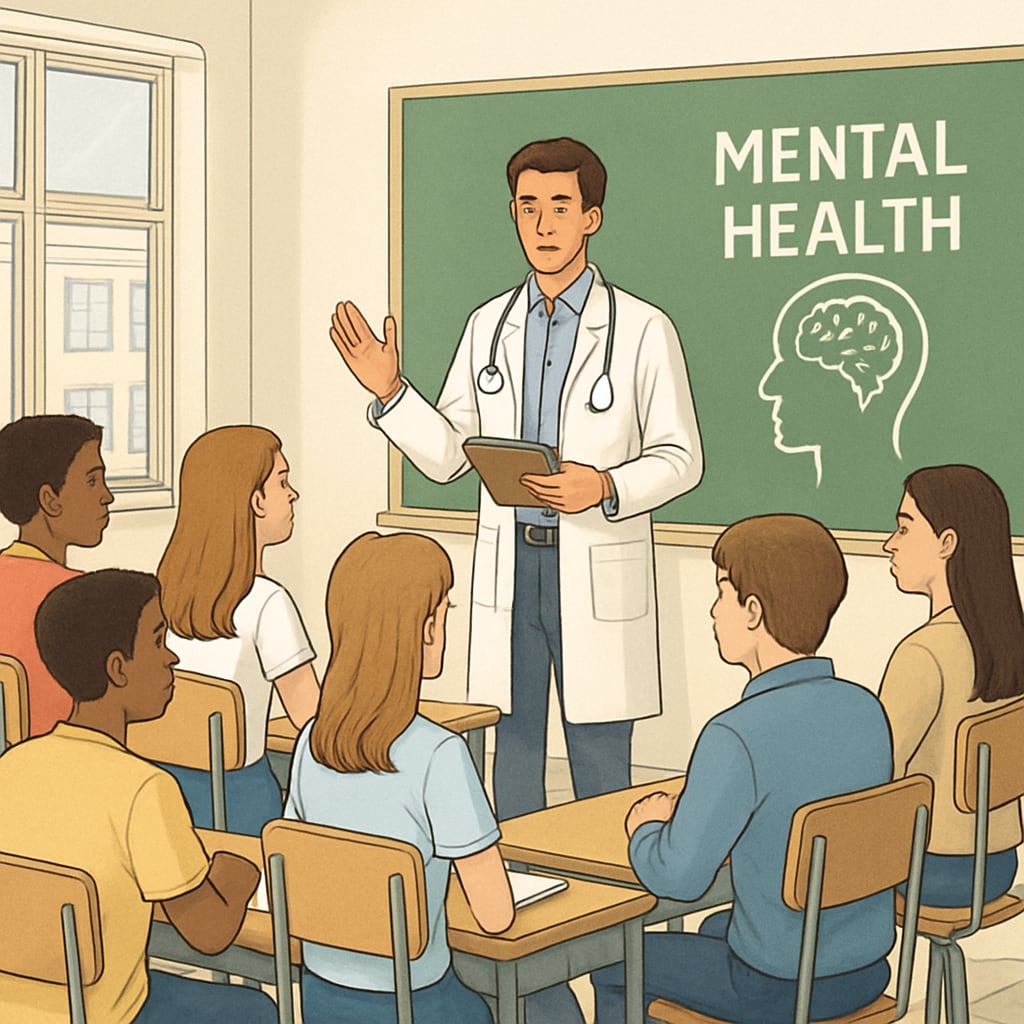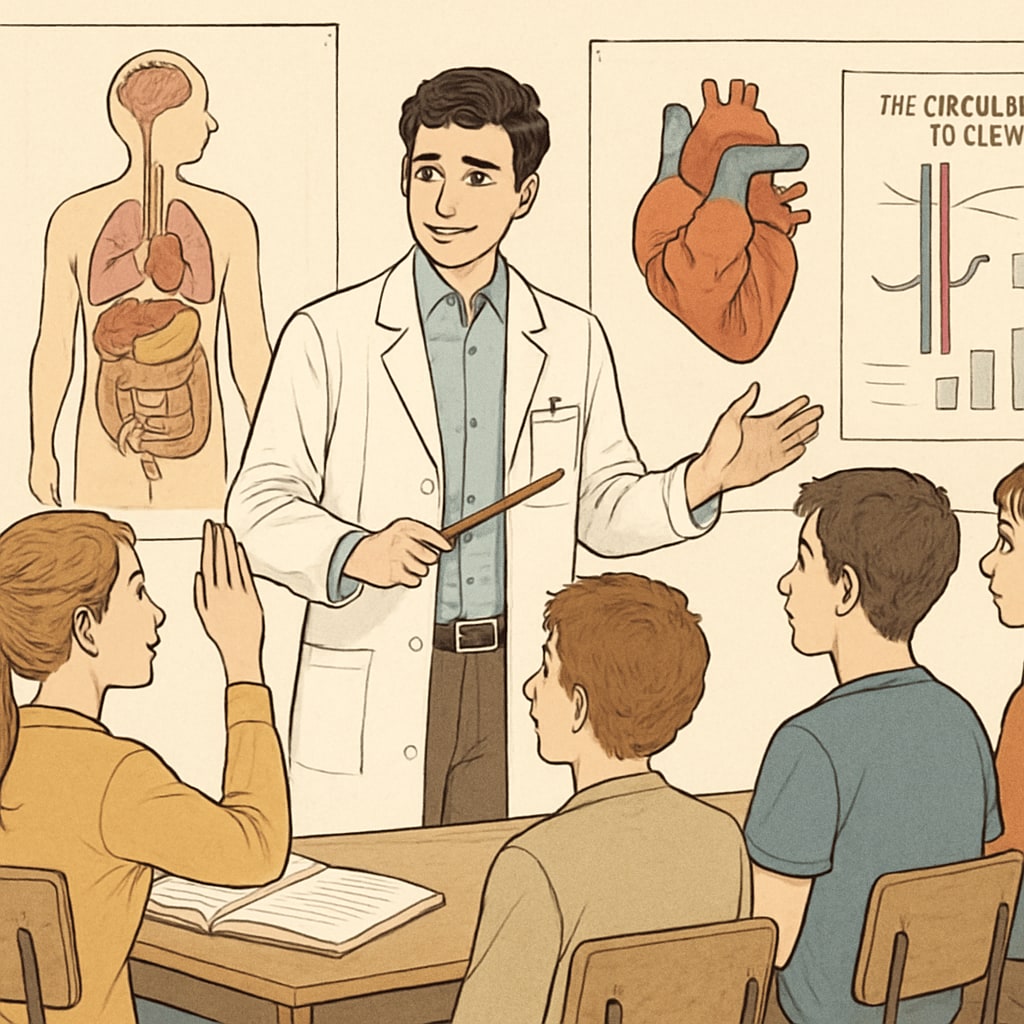Addressing mental health among adolescents is a growing priority in today’s society. Organizing mental health seminars for high school students offers medical students a unique opportunity to use their knowledge to make a tangible impact. This article explores practical steps for medical students to plan, design, and execute engaging mental health seminars that resonate with high school audiences.
Why High School Mental Health Seminars Matter
Mental health issues often emerge during adolescence, a time of rapid growth and self-discovery. High school students face academic pressures, social challenges, and the complexities of emotional development. These factors can contribute to stress, anxiety, and other mental health concerns. Engaging high school students in mental health seminars can:
- Raise awareness about common mental health issues like stress, anxiety, and depression.
- Provide coping strategies and tools to manage emotional challenges.
- Encourage open conversations to reduce stigma around mental health.
- Foster early identification and intervention for those in need.

How to Plan an Effective High School Mental Health Seminar
Organizing a successful seminar involves careful planning and collaboration. Here are the key steps:
1. Establish Collaborative Partnerships
Start by reaching out to local high schools and their administrative teams. Build a partnership by highlighting the value of the seminar for students’ well-being. Collaborate with school counselors, teachers, and parent associations to ensure the seminar aligns with school policies and objectives.
2. Understand Your Audience
Teenagers are diverse in their needs and experiences. Conduct preliminary research or surveys to understand the specific mental health challenges faced by the target audience. This data will help customize the seminar content to be relatable and impactful.
3. Design Engaging and Age-Appropriate Content
When developing the session, keep the following principles in mind:
- Use simple, age-appropriate language to explain psychological concepts.
- Incorporate multimedia such as videos, graphics, or role-playing activities to maintain engagement.
- Focus on actionable takeaways, such as breathing exercises or journaling techniques.
- Include stories or case studies to humanize and contextualize the topics.
4. Leverage Interactive Formats
Rather than relying solely on slides and lectures, include interactive elements. Q&A sessions, small group discussions, or anonymous polls can help students feel involved and comfortable sharing their thoughts.

5. Address Key Topics
The content of the seminar should focus on the most relevant mental health issues for adolescents. Topics may include:
- Recognizing signs of stress and anxiety.
- Building resilience and emotional intelligence.
- Strategies for managing academic pressure and time management.
- The importance of seeking help and resources available for support.
Executing the Seminar: Practical Tips
On the day of the seminar, ensure a smooth execution by following these guidelines:
1. Create a Welcoming Environment
Set up the venue to feel inviting and comfortable. Use props, colorful visuals, or even music to break the ice. Begin the session with a friendly introduction to build rapport.
2. Encourage Participation
Engage students through questions, hands-on activities, or real-life scenarios. Emphasize that there are no “wrong” answers, creating a safe space for expression.
3. Provide Post-Seminar Resources
Offer take-home materials, such as brochures or links to online mental health resources. Additionally, ensure students know how to reach out for help, whether through school counselors or local mental health services.
Measuring Impact and Seeking Feedback
After the seminar, gather feedback from students and school staff to evaluate its effectiveness. Use surveys or open-ended questions to understand what resonated most and identify areas for improvement. Sharing the outcomes can help refine future seminars and reinforce collaboration with schools.
In conclusion, medical students have an incredible opportunity to make a difference by organizing mental health seminars for high school students. By combining medical expertise with creativity and empathy, these seminars can equip teenagers with the tools they need to navigate the challenges of adolescence while fostering a culture of mental well-being.
Readability guidance: This article uses clear language, short paragraphs, and actionable lists to ensure accessibility. It balances informative content with practical tips and emphasizes collaboration and empathy throughout.


